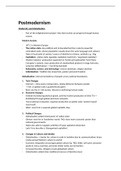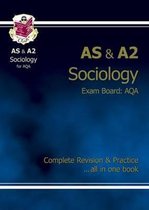Summary
Summary AQA A-level Sociology Book 2: Theory and methods: Postmodernity A* revision notes
- Institution
- AQA
If you want to get an A* in sociology then these summarised revision notes are your step to success. This document contains detailed notes on Postmodernity in the Theory and Methods Topic. All notes are summarised and will save you hours of time which can be used revising these notes. Notes includ...
[Show more]




